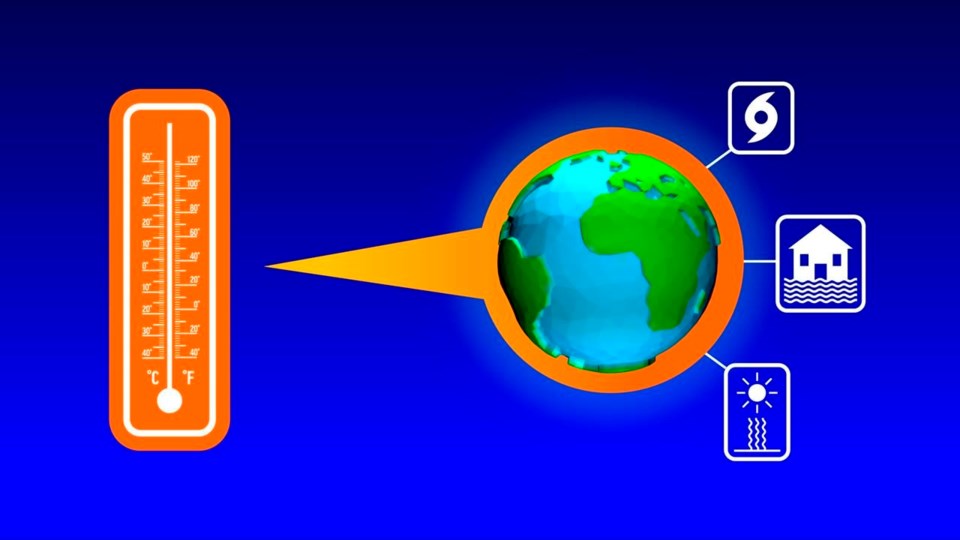On a thermometer, a tenth of a degree seems tiny, barely noticeable. But small changes in average temperature can reverberate in a global climate to turn into big disasters as weather gets wilder and more extreme in a warmer world.
In 2015, countries around the world agreed to cut greenhouse gas emissions to limit global warming to “well below” 2 degrees Celsius (3.6 degrees Fahrenheit) and pursue a goal of curbing warming to 1.5 Celsius (2.7 Fahrenheit) as part of the Paris Agreement.
Two degrees of difference might not be noticeable if you're gauging the weather outside, but for global average temperatures, these small numbers make a big difference.
“Every tenth of a degree matters,” is a phrase that climate scientists around the world keep repeating.
___
EDITOR’S NOTE: This story is part of an ongoing series answering some of the most fundamental questions around climate change, the science behind it, the effects of a warming planet and how the world is addressing it.
___
The Earth has already warmed at least 1.1 degrees Celsius (2 degrees Fahrenheit) since pre-industrial times, giving the world around 0.4 degrees Celsius (0.7 Fahrenheit) of more heating before passing the goal and suffering even more catastrophic climate change events, scientists have said.
These tenths of a degree are a big deal because the temperatures represent a global average of warming. Some parts of the world, especially land mass and northern latitudes like the Arctic have already warmed more than the 1.1 Celsius average and have far surpassed 1.5 Celsius, according to estimates.
It's helpful to look at temperatures like a bell curve, rather than just the average which doesn't reveal “hidden extremes,” said Princeton University climate scientist Gabe Vecchi.
“On the far end where the bell shape is very narrow, that is telling you the odds of very extreme events,” he said. “If you have a slight shift of the average of the peak of that bell to the warming direction, what that results in is a substantial decrease in the odds of extremely cold temperatures and a substantial increase in the odds of extremely warm temperatures.”
It's a similar picture with sea level rise, where the average obscures how some places are seeing much higher sea level increases than others, he said.
Most nations — including the world’s two largest emitters, the U.S. and China — aren’t on track to limit warming to 1.5 Celsius or even 2 Celsius, according to scientists and experts who track global action on climate change, despite promises to cut their emissions to “net zero”.
If temperatures increase by about 2 more degrees Celsius by the end of the century, the world will experience five times the floods, storms, drought and heat waves, according to estimates by the Intergovernmental Panel on Climate Change.
“All bets are off” when it comes to how climate systems will respond to more warming, warned Brown University climate scientist Kim Cobb. The threat of some irreversible changes and feedback loops that amplify warming, such as the thawing of permafrost that traps massive amounts of greenhouse gas, could trigger even more heating.
“It’s just staggering to think about how many people will be under immediate threat of climate-related extremes in a two degree world," Cobb said.
___
Follow AP’s climate and environment coverage at https://apnews.com/hub/climate-and-environment
___
Associated Press climate and environmental coverage receives support from several private foundations. See more about AP’s climate initiative here. The AP is solely responsible for all content.
Seth Borenstein And Dana Beltaji, The Associated Press



